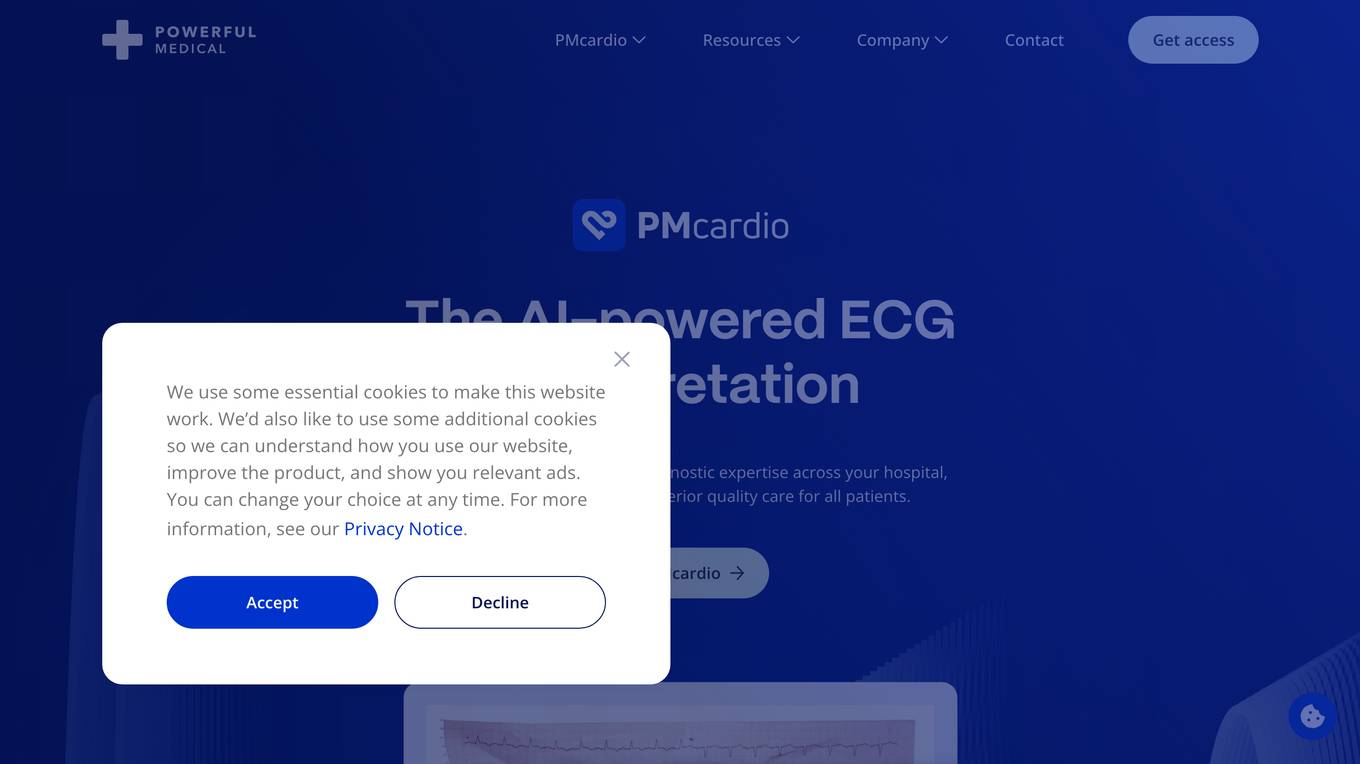Best AI tools for< Ecg Educator >
Infographic
1 - AI tool Sites

PMcardio
PMcardio is an AI-powered platform that offers accurate and rapid diagnosis of cardiovascular diseases through ECG interpretation. It provides healthcare professionals with advanced AI technology to detect conditions such as acute ST-elevation myocardial infarction (STEMI) and reduced Left Ventricular Ejection Fraction (LVEF) within seconds. PMcardio aims to streamline clinical decision-making, enhance diagnostic accuracy, and improve patient care by leveraging AI algorithms trained on millions of patient outcomes. The platform is designed to ensure standardized ECG reports, facilitate care coordination, and meet the highest standards of quality and security in healthcare settings.
site
: 51.0k
0 - Open Source Tools
No tools available
0 - OpenAI Gpts
No tools available